 This one's for Pam, who wanted to know if she should get the reissue edition of Raven's Prey, a 1983 Jayne Ann Krentz oldie, originally written under her Stephanie James pseudonym.
This one's for Pam, who wanted to know if she should get the reissue edition of Raven's Prey, a 1983 Jayne Ann Krentz oldie, originally written under her Stephanie James pseudonym. I've had the original SIM in my TBR for a while (I can tell you, the new cover is kinda boring, but it's a HUGE improvement on the original!), so I offered to check it out for her. It's been a while since I've fished out an old JAK from the big pile I still have there in the TBR, so it was no great hardship!
Perhaps he was perfectly harmless. Then again -- perhaps he was her worst nightmare.Well, Pam, I've got mixed feelings about this one. The whole first part drove me crazy, because the hero was a total bastard and the heroine a bit of a doormat, but remember how I told you that the one thing that could save this book would be an amazing grovel at the end? The good news is there is a grovel, and it is quite a nice one, too. Not quite incredibly wonderful enough to actually make me give the book a good grade, but enough to bring it to a C, from the depths of a D (and at a certain point, a D-).
When a shady business deal goes awry, Honor Knight is desperate to flee the U.S. with her life -- even if it means taking refuge deep in rural Mexico. Her captor has other ideas. Judd Raven has been hired -- by two men claiming to be her father and brother -- to hunt Honor down.
Honor knows that delivery into their hands will mean certain death. Judd's been led to believe she's a compulsive liar. How can she prove to her kidnapper that these men are seasoned, murderous criminals? Judd's just a cold-blooded mercenary with money on his mind. Or could there still be a beating heart underneath that rugged exterior?
Ok, let me backtrack a bit. The story is simple. As the book starts, Honor Knight has been in hiding in Mexico for a few months. She was working for some people who seemed to be consultants but turned out to be gunrunners, and when they realized she'd found out, she had to be eliminated.
So Honor is there, in a tiny little town in Mexico, not knowing who she can turn to, when another gringo shows up, and she just knows he's there to find her. The gringo is Judd Raven, who's been hired by two men claiming to be Honor's father and brother. They told him that he needs to bring her back to them because she's a spoiled neurotic who's supposed to be under psychological treatment and who's even tried to kill herself once already.
Honor obviously does her best to tell Judd her version of the truth, but even after they become closer, she doesn't succeed in convincing him. And for a woman like Honor, trust is something basic in every relationship, so that's that. As far as she's concerned, a relationship between them is now impossible.
Let's start with what bothered me. If this book had been by any other author, I wouldn't have reached the end of it. All the first part, right from the moment when Judd arrives in Honor's village and until the point where he finally becomes 100% convinced that she's telling the truth, sucks big time. And 99% of that suckiness was because of the horrid hero.
Judd Raven kept me gritting my teeth all through this part of the book. He pushed a huge hot button of mine: sexist pricks who think men have the right to treat "their" women as they will. His whole attitude had this "this neurotic woman needs a man who will lay down the law for her" slant to it that I hated. Why was he so decided to completely ignore Honor's story? I mean, he'd already been thinking that her eyes in her photo reflected an intelligence that didn't suggest the type of woman that had been described. And there are many clues that she's not a spoiled little princess. Let's see... spending so long in a backwater village, without any modern conveniences, the fact that everyone in the village liked her and that she was nice to everyone... isn't that enough to engender a few doubts?
But see, two men had told him that she was crazy and needed to be brought back, so that was that. Sooo frustrating! When Honor would try to make him understand, and all he would do was accuse her of being hysterical, I wanted to shake him until his teeth fell off.
What else? I'll just list stuff, to give you an idea of this section's flavour, because if I start explaining, it would take pages: We've got plenty of threats of physical violence (to beat her up, to rape her, you name it), we've got Judd thinking to himself she's practically asking to be raped, and that it's her fault that he's so tempted (and we've got him actually fantasizing about it), we've got a disgusting scene in which Judd makes this whole point about forcing Honor to wash his shirts (as any good woman has the obligation to do for her man. And she ends up washing them, too), we've got Judd constantly unable to take a little teasing, always feeling outraged at how she dares defy him, and many, many (believe me, many) more.
The other 1% of this first part's suckiness, if you were wondering, is because of Honor rolls over so easily. Though I do give her some latitude, because she really is in an impossible situation. She does try her best to convince Judd. I just wanted her to resist him a bit more when he makes a move on her!
I think the only positive I saw in this section was a tiny degree of vulnerability on Judd's part, a certain suggestion of loneliness when we are in his POV. If he hadn't behaved like such a boneheaded idiot, he could have been interesting to read about.
So, so far, a horrible book. But once Judd finally becomes convinced that Honor had been telling the truth all along, things do improve. At first, it's only a minute improvement... Judd is still on his best caveman behaviour, telling Honor that since she "gave herself to him" (read: she slept with him), she's now his (old-time JAK heros were quite fond of this reasoning; I've read this in a few of her books) and then kidnapping her so that "they can become friends". I guess it's a measure of how bad the first part was, that this is an improvement!
The only real improvement comes at the end, when Judd realizes exactly why Honor was so upset. And he totally understands then, when he finds himself in a position in which he needs Honor trust and isn't sure he'll get it. The grovel that comes after this isn't perfect, but it's pretty good, and it ended the book in a positive note.
My recommendation? Unless you're a big JAK fan, don't bother. She has plenty more books that are miles better than this, even with the nice grovel.
Oh, and before I finish, a bit of nitpicking. I can't help myself. The Spanish? It sucked. Especially that little bit about how they called Honor "Honora" in the village, "feminizing Honor's name with an "a" on the end". Nope, that doesn't ring true. Plenty of female name in Spanish that don't finish in "a". Mine, for instance. Or, I don't know, how about Leonor? It ends just like Honor. I know, I know, just a tiny detail, sorry for even mentioning it!
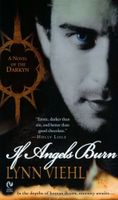
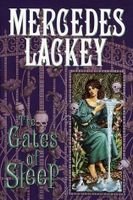 Well, waiting so long before finding wonderful authors like
Well, waiting so long before finding wonderful authors like  Another book from right before I left for Japan, so again, please forgive any vagueness and/or factual inaccuracy!
Another book from right before I left for Japan, so again, please forgive any vagueness and/or factual inaccuracy!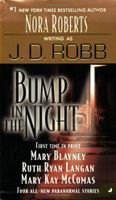 I got
I got 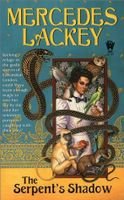 2006 has so far been a wonderful reading year for me. I've read quite a few new-to-me books that I rated in the A range, and one of them was
2006 has so far been a wonderful reading year for me. I've read quite a few new-to-me books that I rated in the A range, and one of them was 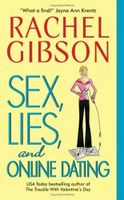
 My first
My first 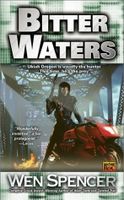 Last year I reread the first book in
Last year I reread the first book in 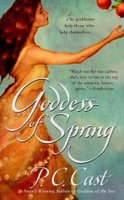 Ok, starting with the book posts... now! And if they turn out to be shorter than usual, my apologies: I've read some of these a while ago.
Ok, starting with the book posts... now! And if they turn out to be shorter than usual, my apologies: I've read some of these a while ago.